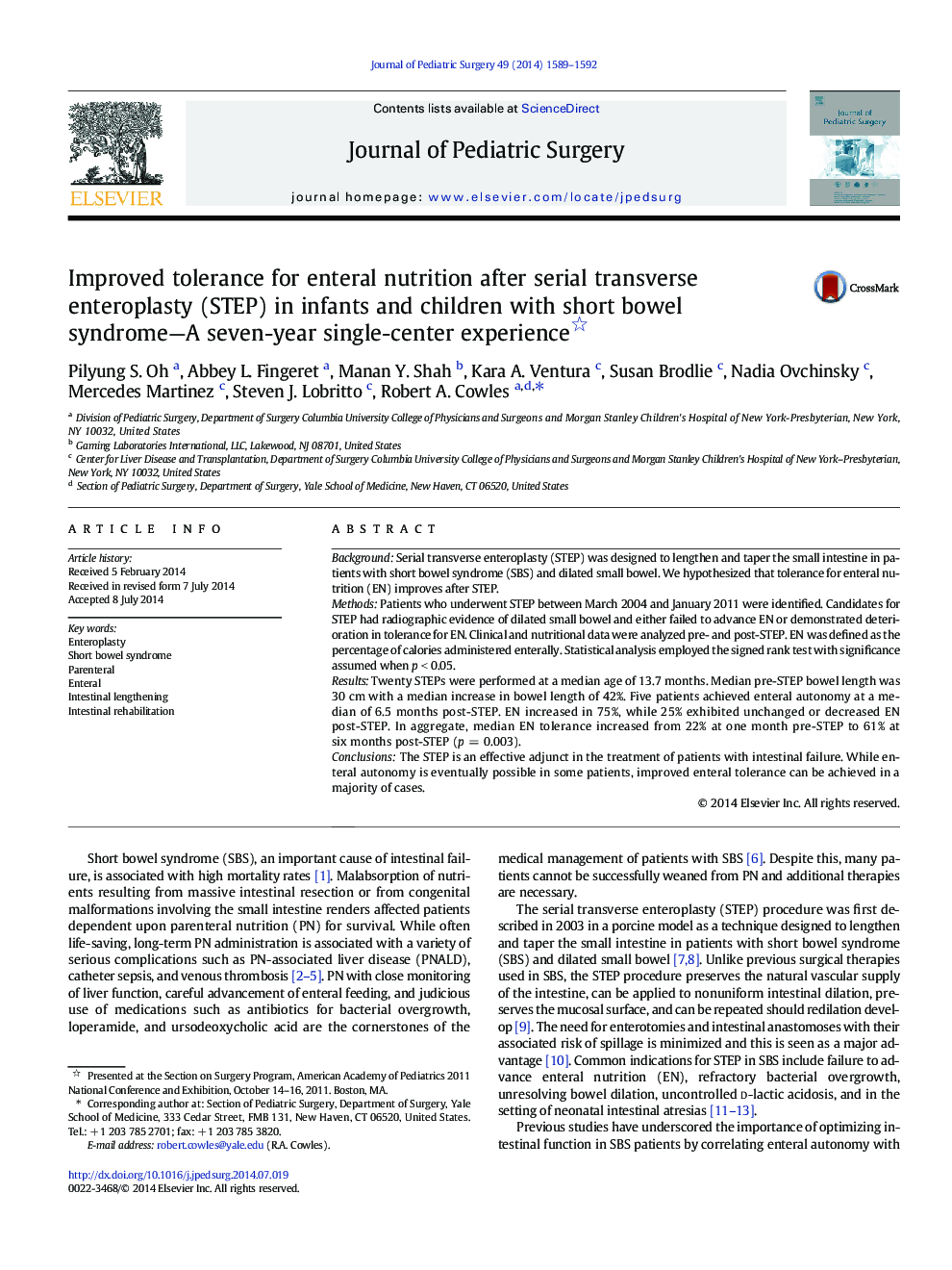| Article ID | Journal | Published Year | Pages | File Type |
|---|---|---|---|---|
| 4155347 | Journal of Pediatric Surgery | 2014 | 4 Pages |
BackgroundSerial transverse enteroplasty (STEP) was designed to lengthen and taper the small intestine in patients with short bowel syndrome (SBS) and dilated small bowel. We hypothesized that tolerance for enteral nutrition (EN) improves after STEP.MethodsPatients who underwent STEP between March 2004 and January 2011 were identified. Candidates for STEP had radiographic evidence of dilated small bowel and either failed to advance EN or demonstrated deterioration in tolerance for EN. Clinical and nutritional data were analyzed pre- and post-STEP. EN was defined as the percentage of calories administered enterally. Statistical analysis employed the signed rank test with significance assumed when p < 0.05.ResultsTwenty STEPs were performed at a median age of 13.7 months. Median pre-STEP bowel length was 30 cm with a median increase in bowel length of 42%. Five patients achieved enteral autonomy at a median of 6.5 months post-STEP. EN increased in 75%, while 25% exhibited unchanged or decreased EN post-STEP. In aggregate, median EN tolerance increased from 22% at one month pre-STEP to 61% at six months post-STEP (p = 0.003).ConclusionsThe STEP is an effective adjunct in the treatment of patients with intestinal failure. While enteral autonomy is eventually possible in some patients, improved enteral tolerance can be achieved in a majority of cases.
